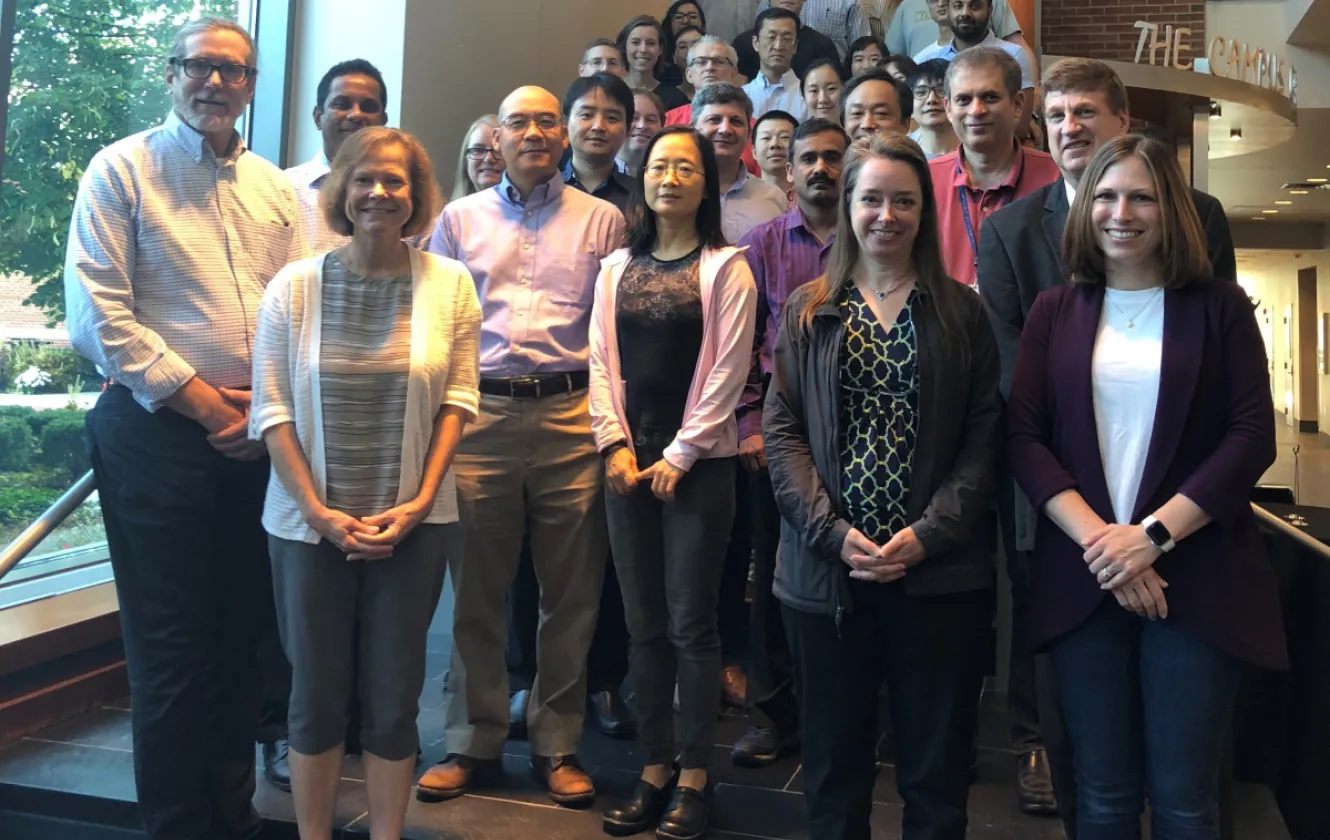About the Center: 30+ Years of History
Our mission is to facilitate interdisciplinary investigations of problems relating to prevention and treatment of retrovirus diseases of humans and animals.
Center members include internationally recognized leaders in the field of retrovirology. Individual research programs focus on:
- Understanding fundamentals of the molecular biology of retroviruses
- Retrovirus pathogenesis and prevention of infection or disease
- Retroviral vector development and application to gene delivery and disease treatment
As part of this mission, the Retrovirus Research Program and the Center for Retrovirus Research have initiated more than 60 extramural projects pertaining to the pathobiology of retrovirus-associated diseases over the past 30 years. On behalf of center members, the university has been awarded extramural research support from the NIH, Department of Defense (DOD), and private foundations and companies. The pioneering research that led to the development of the feline retrovirus vaccine at The Ohio State University was sponsored by extramural research dollars. An additional $14 million of unencumbered royalties have come to the university from the sales of the vaccine (LeukocellR) licensed to Zoetis (formally Pfizer Animal Health).
The Center's operation is governed by a charter approved by University Administration and the Board of Trustees. The Center has a director elected by the membership and approved by the dean of the College of Veterinary Medicine. The director's responsibilities are to guide the overall operations of the center, provide leadership and promote excellence in the research and educational endeavors. A scientific board composed of center members advises the center director.
Center Investigators
The Center for Retrovirus Research membership includes 20 principal investigators at The Ohio State University, Children’s Hospital Research Institute and Wright State University. The research interests of center members are diverse and form a highly interdisciplinary network of collaboration for research initiatives. Research disciplines include virology, pathology, immunology, cell biology, molecular biology, endocrinology, neurology, pharmacology, biochemistry, and infectious diseases. This multi-disciplinary composition enables researchers to design and develop comprehensive research studies on retrovirus diseases and related topics that would not be possible by individual laboratories.

Support the Center for Retrovirus Research
Your support is vital to bolstering the Center for Retrovirus Research’s quest for knowledge that benefits human and animal health.
For more information about making a gift to support the Center for Retrovirus Research, call 614-688-4899 or contact us via email (green.466@osu.edu).
Donations strengthen the center's ability to perform cutting-edge fundamental and applied research with far-reaching and significant benefits to humanity. Our efforts will ultimately improve treatments of diseases including cancer and AIDS. Focus areas include:
- Dissecting fundamental aspects of retrovirus replication
- Studying how the retrovirus interacts with the infected human or animal hosts to gain insights into basic cell biology and immunology including mechanisms of cell signaling, transcriptional and post transcriptional control of gene expression and cellular transformation and disease
- Manipulating the malleable retrovirus genome to produce vectors for gene delivery
- Employing viral vectors to treat cancer, metabolic disease and prevent pathogenic retrovirus infection
Give Now
Visit Give to Ohio State to Giving to the Center for Retrovirus Research is easy. Any support, regardless of the amount, helps the center achieve our mission of facilitating interdisciplinary investigations of problems relating to prevention and treatment of retrovirus diseases of humans and animals.
Contact Information
Patrick Green, PhD
Director - Center for Retrovirus Research
Phone: 614-688-4899
Email: green.466@osu.edu